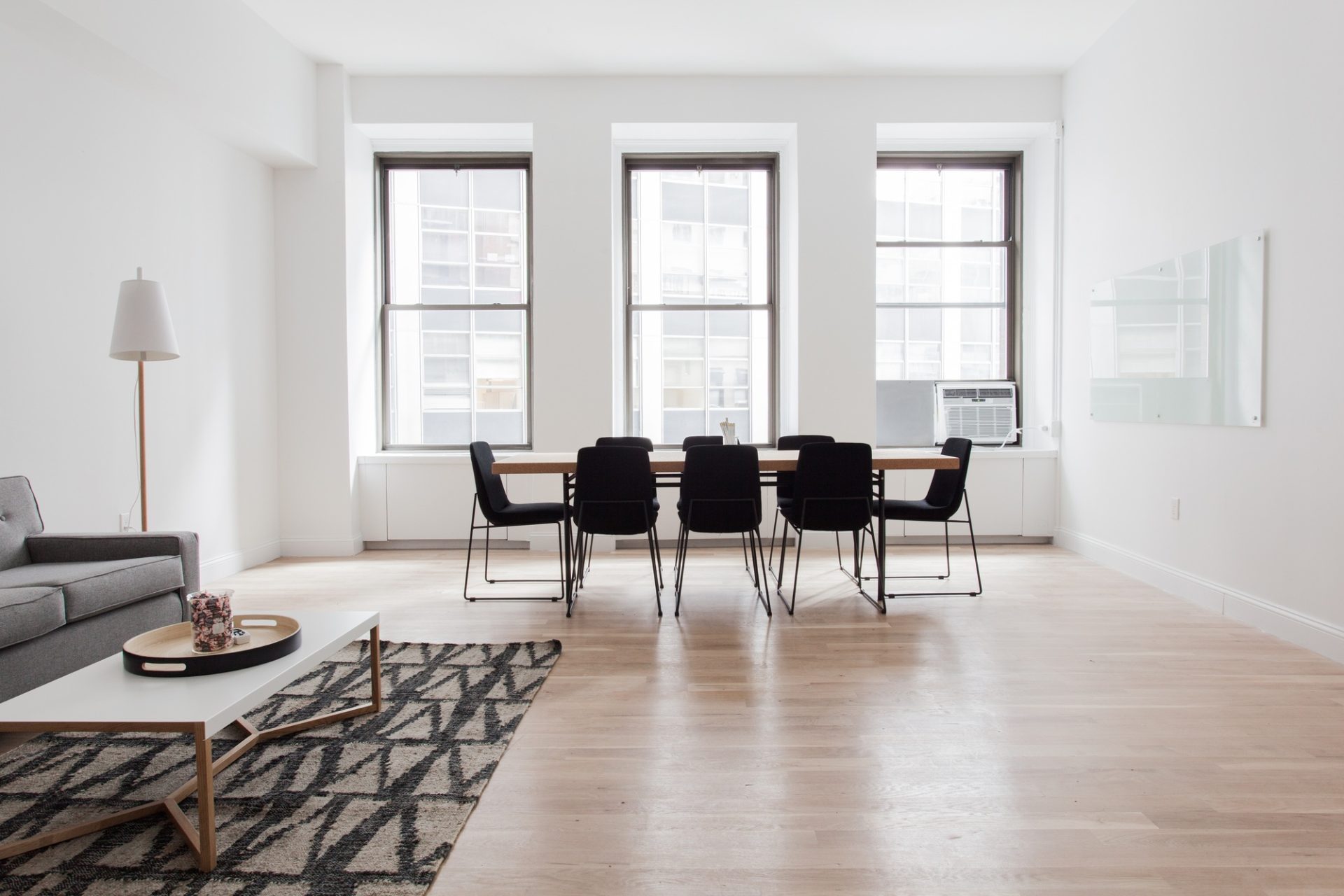Tile vs Hardwood Flooring: Which Should You Choose?
- Published By: District Floor Depot

In 2019, the ceramic tile industry enjoyed $3.9 billion dollars in sales. The year before, in 2018, hardwood flooring accounted for $3.52 billion of the overall $27.17 billion Americans spent on flooring that year.
Clearly, tile and hardwood are popular and viable flooring options for any home.
Are you trying to decide between the two? There are many things to consider when looking at tile vs hardwood flooring. Let’s look what those are below. Hopefully, these will give you a better idea of which style is right for your project.

Aesthetics
There is a timeless quality to hardwood flooring that may quite possibly never lose its appeal. A home with hardwood floors looks chic, yet is warm and inviting.
The only disadvantage to the look of hardwood is its relative lack of variety. You can vary the sizes of the planks and choose different shades of brown and tan. However, that’s about as creative as you can get.
Tile offers a whole host of options. Choose from a wide range of colors, patterns, and textures. Add a design to the floor or create a specific pattern using colored tiles.
Unleash your creativity and you’ll find you can create virtually any look you want with tiles. From classic to modern to bold to neutral, it’s all possible with tile.

Maintenance
Daily cleaning a hardwood floor tends to be easier than tile. Both can be swept and mopped to take care of most debris (dry mop a hardwood floor). However, over time the grout between your tile will pick up dirt and possibly even mold and other gunk.
Occasionally, you’ll have to get down on your knees with a scrub brush and do a deep clean to keep it nice. Eventually, it may get so stained that you have to have it regrouted in order to restore its look.
If you damage a portion of a tile floor, it’s easy to replace just the affected tiles. Although, keep in mind that years later it may be difficult to find exact tiles to match.
With proper maintenance, hardwood floors can last for years. While the wood can get scratched by furniture or dented by stiletto heels, it can be sanded and refinished to give it a fresh look.

Durability
Durability is a huge part of your flooring decision. If you have a busy household with kids and pets, you’ll want a more durable floor. Otherwise, you’ll be spending far too many Saturdays fixing damaged portions or trying to clean up stains.
Tile wins out in this category. It’s relatively easy to scratch and dent hardwood floors. Not to mention moisture can cause them to warp. This is not only a problem if you foresee constantly spilling liquids on it but also in humid climates. Even the excess humidity in the air can damage the floor over time.
Tile, on the other hand, is quite durable. There are several types of tile and choosing a non-porous one is a great option for kitchens and bathrooms as it will be less likely to stain or have moisture problems.
Tile can crack somewhat easily, but breaking tile (as long as it was properly installed) is quite difficult.

Price
To say that one type of flooring is less expensive than the other is too simplistic. With all the different options that you have to choose from, the price of both materials can vary quite a bit.
That being said, tile is generally less expensive than hardwood. Real wood is not a cheap material to work with. Plus, installing a hardwood floor is no easy task, requiring a professional installation crew and running up the cost of installation. However, the finished product is worth every penny.
Most tile floors are rather simple to install. Some people even opt to DIY the installation to save money. This isn’t always the best idea as improper installation can lead to broken tiles and otherwise shorten the lifespan of your floor.
Another thing to consider is the long-term value of the flooring. Hardwood flooring tends to be desirable for most home buyers, thus adding value to your home when it comes time to sell.

Warmth
Hardwood floors typically come in gorgeous shades of brown and tan. The colors are warm and have long been associated with a loving, homey atmosphere.
While you can choose a warm color palette for your tile floor, it isn’t quite the same. Add to that the fact that the color isn’t the only thing warmer about a hardwood floor.
Ever stepped out of the shower onto a tile floor in winter? It’s even worse on a cold morning when you’re all snug in bed and have to step out in bare feet onto a tile floor.
Your toes aren’t happy about it!
Hardwood floors, while still not as warm as carpet, will not be nearly as cold as tile. The difference can be a welcome relief on cold mornings.
Of course, if you have radiant floor heating, this won’t be a concern for you. Your floors will always be nice and toasty regardless of the material.
Settling the Tile vs Hardwood Flooring Debate
As you can see, there is no clear winner in the tile vs hardwood flooring debate. Both have their pros and cons and it depends on which aspects are most important to you.
For example, if you want gorgeous, timeless floors that will add to the value of your home, hardwood flooring is the way to go. If your goal is to save money, cheap tile floors, though not as pretty and certainly not as desirable will do the job.
Still have questions? Ready to browse hardwood flooring styles? Contact us and check out our gallery. Though tile has a wider range of variety, there are still plenty of hardwood styles to choose from. We can help you choose the perfect one for your home!
